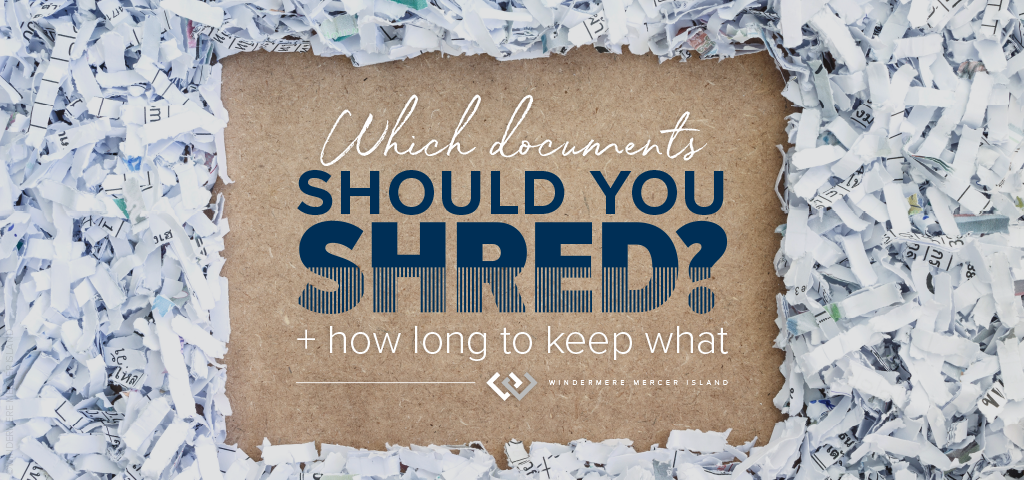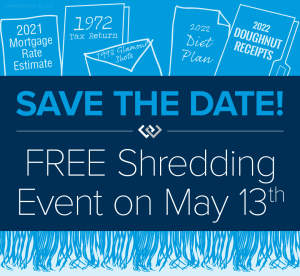As the spring cleaning bug hits, many of us will finally be tackling those stacks of paperwork that have been piling up throughout the year. It’s tempting to chuck it all in the recycle bin and be done with it. However, did you know that it’s actually legal for someone to dig through your trash/recycling once it hits the curb? What’s more, seemingly innocuous documents—like junk mail—can actually contain sensitive info to help someone steal your identity. Scroll down for our list of what you should shred and when (pssst…you can bring it all to our free shredding event happening on Saturday, May 13th from 9am-2pm!).
Shred Immediately
- Expired IDs & records: passports, driver’s licenses, old insurance cards, identification cards/badges, etc.
- Utility and credit card bills that have been paid
- Receipts not needed for tax deductions or warranties
- ATM receipts
- Resumes that are no longer needed
- Junk mail credit card offers
- Address labels from junk mail and magazines
- Any unneeded documents containing your address, signature, social security number, PIN, passwords, account numbers, medical records, or other sensitive/private information you wouldn’t want publicly shared
Shred Within a Year
- Paycheck stubs, once you’ve confirmed the info matches your W-2
- Bank statements
- Monthly/quarterly retirement statements (keep annual summaries until you retire or close the account)
- Medical bills that have been paid
Shred After 6 Years
- Records from home or condo sales
Shred After 7 Years
- Tax returns
- W-2 and 1099 forms
- Mortgage interest statements
- Property tax records
- Statements, cancelled checks, and receipts used as documentation for tax deductions
Do NOT Shred – But Do Store Securely
Keep these items indefinitely in a locked filing cabinet/room, safe, or safe deposit box:
- Social Security cards
- Birth certificates
- Adoption papers
- Current passports or citizenship documentation
- Marriage and divorce records
- Death certificates of family members
- Deeds & titles for property/automobiles for as long as you own them
While these tips are helpful, they can’t replace the advice of a tax professional. Consult an expert if you have questions.

© Copyright 2023, Windermere Real Estate/Mercer Island.

 Facebook
Facebook
 X
X
 Pinterest
Pinterest
 Copy Link
Copy Link




